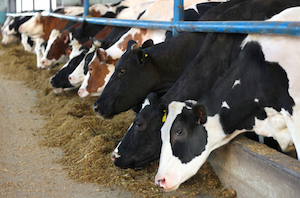 does not intend to stock mixed-origin beef and has rejected proposals that beef could be labelled mixed-origin.
does not intend to stock mixed-origin beef and has rejected proposals that beef could be labelled mixed-origin.British retailers have overhauled their supply chains after the horsemeat scandal last year, to make them more transparent and to reassure consumers.
However, there is currently a problem with the labelling of beef where the cattle have been reared in the Republic of Ireland but finished in Northern Ireland, as it cannot be labelled as only originating from one country.
The Irish Farmers' Association has been championing a new all-Ireland labelling system to attempt to overcome this problem and stimulate the sale of beef from the Republic of Ireland in Northern Ireland. The new labelling received approval from the Northern Irish Department of Agriculture last week.
However, Tesco has said that it will not stock mixed-origin beef. In a letter to Irish MEP Mairead McGuinness, the retailer defended its rejection of the beef saying that its research consistently showed that customers did not want meat from mixed origins as, "they want products that come from simple supply chains that are easy for them to understand." Tesco added that it was proud to sell beef that was either from Northern Ireland or the Republic.
Several stakeholders have challenged Tesco's stance and have called on the retailer to provide support for its claims that consumers do not want such beef. They also feel that ban is harder to understand when the geographic proximity between the Republic of Ireland and Northern Ireland is taken into account.
Apparently mixed labels are frequently used in Italy where cattle are reared in Ireland, but finished locally. Eddie Punch of the Irish Cattle and Sheep Farmers Association said that the refusal to accept the mixed-origin beef amounted to an artificial barrier to trade under EU competition laws.
A solution that is workable for all parties is urgently needed. Around 40,000 calves, weanlings and store cattle were exported to Northern Ireland in 2010, but this fell to 16,000 last year when the new specifications were introduced, and is down to just 6,265 animals this year.





